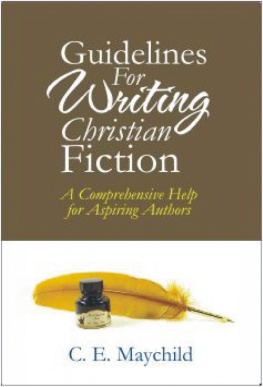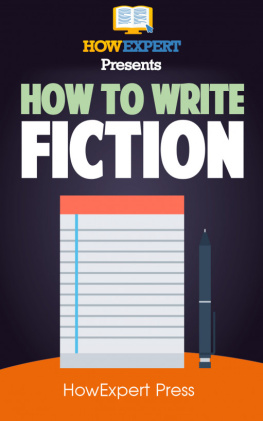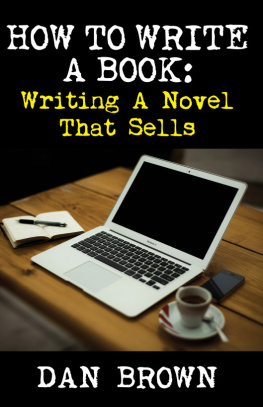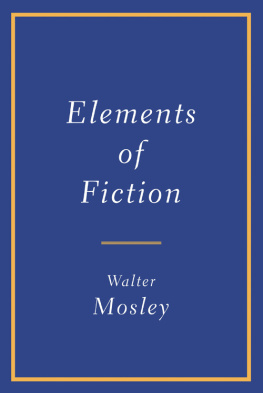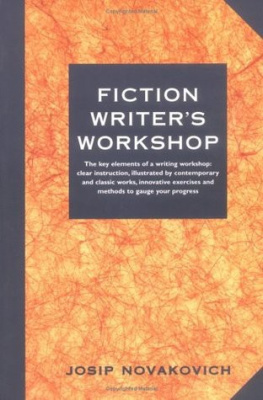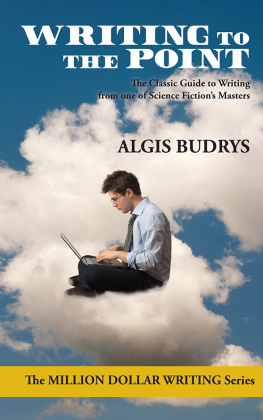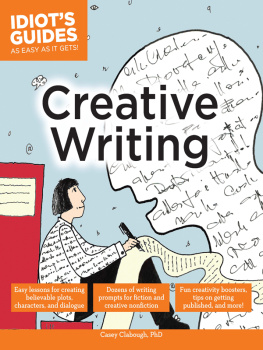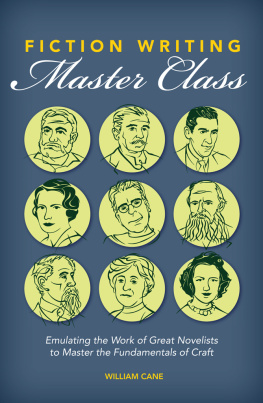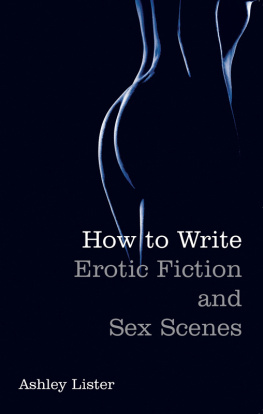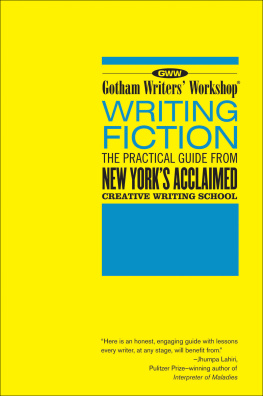
Copyright 2006 by Adam Sexton. All rights reserved. Except as permitted under the United States Copyright Act of 1976, no part of this publication may be reproduced or distributed in any form or by any means, or stored in a database or retrieval system, without the prior written permission of the publisher.
ISBN: 978-0-07-178345-3
MHID: 0-07-178345-8
The material in this eBook also appears in the print version of this title: ISBN: 978-0-07-144877-2, MHID: 0-07-144877-2.
All trademarks are trademarks of their respective owners. Rather than put a trademark symbol after every occurrence of a trademarked name, we use names in an editorial fashion only, and to the benefit of the trademark owner, with no intention of infringement of the trademark. Where such designations appear in this book, they have been printed with initial caps.
McGraw-Hill eBooks are available at special quantity discounts to use as premiums and sales promotions, or for use in corporate training programs. To contact a representative please e-mail us at bulksales@mcgraw-hill.com.
Permissions
Excerpts from Aspects of the Novel by E.M. Forster, copyright 1927 by Harcourt, Inc. and renewed 1954 by E.M. Foster, reprinted by permission of the publisher.
From Rabbit, Run by John Updike, copyright 1960 and renewed 1988 by John Updike. Used by permission of Alfred A. Knopf, a division of Random House, Inc.
From A Severed Head by Iris Murdoch, copyright 1961, renewed 1989 by Iris Murdoch. Used by permission of Viking Penguin, a division of Penguin Group (USA) Inc.
Excerpts from Beloved reprinted by permission of International Creative Management, Inc. Copyright 1987 by Toni Morrison.
Reprinted with permission of Scribner, an imprint of Simon & Schuster Adult Publishing Group, from A Farewell to Arms by Ernest Hemingway. Copyright 1929 Charles Scribners Sons. Copyright renewed 1956 by Ernest Hemingway.
From The Annotated Lolita by Vladimir Nabokov, edited by Alfred Appel, Jr., copyright 1970, 1981 by Alfred Appel, Jr. Used by permission of Vintage Books, a division of Random House, Inc.
TERMS OF USE
This is a copyrighted work and The McGraw-Hill Companies, Inc. (McGraw-Hill) and its licensors reserve all rights in and to the work. Use of this work is subject to these terms. Except as permitted under the Copyright Act of 1976 and the right to store and retrieve one copy of the work, you may not decompile, disassemble, reverse engineer, reproduce, modify, create derivative works based upon, transmit, distribute, disseminate, sell, publish or sublicense the work or any part of it without McGraw-Hills prior consent. You may use the work for your own noncommercial and personal use; any other use of the work is strictly prohibited. Your right to use the work may be terminated if you fail to comply with these terms.
THE WORK IS PROVIDED AS IS. McGRAW-HILL AND ITS LICENSORS MAKE NO GUARANTEES OR WARRANTIES AS TO THE ACCURACY, ADEQUACY OR COMPLETENESS OF OR RESULTS TO BE OBTAINED FROM USING THE WORK, INCLUDING ANY INFORMATION THAT CAN BE ACCESSED THROUGH THE WORK VIA HYPERLINK OR OTHERWISE, AND EXPRESSLY DISCLAIM ANY WARRANTY, EXPRESS OR IMPLIED, INCLUDING BUT NOT LIMITED TO IMPLIED WARRANTIES OF MERCHANTABILITY OR FITNESS FOR A PARTICULAR PURPOSE. McGraw-Hill and its licensors do not warrant or guarantee that the functions contained in the work will meet your requirements or that its operation will be uninterrupted or error free. Neither McGraw-Hill nor its licensors shall be liable to you or anyone else for any inaccuracy, error or omission, regardless of cause, in the work or for any damages resulting therefrom. McGraw-Hill has no responsibility for the content of any information accessed through the work. Under no circumstances shall McGraw-Hill and/or its licensors be liable for any indirect, incidental, special, punitive, consequential or similar damages that result from the use of or inability to use the work, even if any of them has been advised of the possibility of such damages. This limitation of liability shall apply to any claim or cause whatsoever whether such claim or cause arises in contract, tort or otherwise.
To Bharati Mukherjee
Contents
Foreword
by Jonathan Ames
A lot of beginning writers think that if they just find the right mentor, their writing will be taken to another level. They think this mentor will teach them the secrets of prose writing and storytelling, then edit their short stories and novels into masterpieces. These are romantic assumptions. That is to say they are delusional assumptions. There are no magic mentor-editors out there who will take you under their wings and guide you to publication and the best-seller lists. They might have existed at one time, but not now.
But there is an almost limitless resource for fiction writers, from which they can learn everything they need to know: novels and short stories. I have always maintained (well, for the last few years, anyway) that writers are people who love to read, that the first prerequisite for admission to this tortured community of scribblers is a passion for books. So this is where writers should turn for instructiontheir own bookshelves.
I say this with great authority because in forewords to books, youre supposed to speak with authority. Thus Im mimicking what Ive observed other writers do with success in forewordshold forth as if you know what youre talking about. And this illustrates the point I want to make. Ive learned to write by mimicking other writers. Its the way we learned to speakreproducing soundsand its the way, I think, to learn how to write. So Adam Sexton is onto something with this vastly helpful and intelligent book of his.
Along these lines, another thing Ive always maintained is that writers should write the kinds of stories and novels they like to read, that they should write for readers like themselves. If you like science fiction, write science fiction. Dont try to be James Joyce just because you think thats real writing, unless you happen also to like James Joyce. Then you can write like Joyce and your favorite science fiction writers. In fact, you can redo Ulysses as a science fiction novel. After all, Joyce redid a classic heroic tale, The Odyssey, as one day in an average mans life. Follow my meaning? You see, Joyce was mimicking someone, too. Homer. All writers copy from other writers. Thats where the phrase copyright came from. Maybe. Im just playing around with language.
But what Im suggesting is serious. Steal from other writers. Im not saying you should plagiarize. What Im saying is this: Be inspired by other writers, respond to other writers. I watched this jazz documentary by Ken Burns on PBS some years ago. Throughout the documentary, there was a running theme that all the great musicians were responding to their predecessorsCharlie Parker was responding to Louis Armstrong, and Miles Davis was responding to Charlie Parker responding to Armstrong, and so on. All these jazz greats were considered innovators, and yet they were lifting from one another. But, you see, an alchemy occurred whereby something new was invented. By closely listening to someone elses sound, someone elses music, and filtering it through their own consciousness, soul, talent, spirit, each of these great musicians created original works of art. And thats what you can do by responding to other writers. Read other writers the way Miles Davis listened to Charlie Parker. Learn from other writers the way Miles Davis learned from Charlie Parker.



